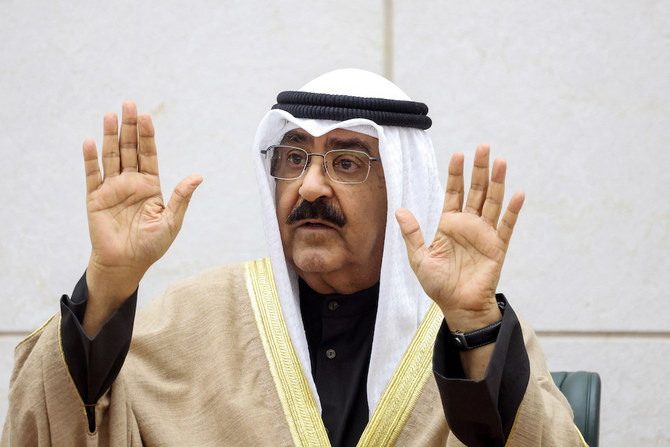Sinem Cengiz
Kuwait has experienced two changes in leadership in just over three years. Sheikh Nawaf Al-Ahmad Al-Sabah, who took the reins in 2020 after the death of his half-brother, Sheikh Sabah Al-Ahmad Al-Sabah, passed away last Saturday. The Gulf country’s new emir, Sheikh Mishal Al-Ahmad Al-Sabah, took the oath of office on Wednesday.
Kuwait’s distinctive foreign policy has been closely associated with the years-long leadership of Sheikh Sabah. Sheikh Nawaf inherited that legacy and, during his brief reign, made his own unique contributions to the country’s domestic and foreign policies. The policies of the past two emirs have significantly influenced Kuwait’s foreign relations, providing a solid foundation for the new leadership’s vision.
Before discussing the future prospects of Kuwait’s relations with Turkiye, it is essential to reflect on the Turkish-Kuwaiti relationship during Sheikh Nawaf’s three-year reign.
Historically, Turkey’s ties with Kuwait have been the most enduring among the Gulf Cooperation Council states, maintaining stability without major fluctuations. Despite facing regional structural challenges, the two countries have entered a new phase in their relationship over the past decade, demonstrating resilience and consistency. This situation became noticeable when several agreements were signed between the two countries in the fields of energy, defense and culture. This positive trajectory has intensified over the past five years, with Sheikh Sabah visiting Turkiye on several occasions, while Turkish President Recep Tayyip Erdogan prioritized Kuwait in his Gulf tours.
The foundation laid during Sheikh Sabah’s leadership bore fruit during his successor’s era. Sheikh Nawaf took the reins at a time when the regional climate was changing. After just a few months in office, the AlUla Declaration, which ended the years-long Gulf dispute, was signed. This situation was a relief for Kuwait, which was concerned about the growing tensions in the region and the future of the GCC as a subregional bloc. It was also a relief for Turkiye, which subsequently opened a new page in its relations with the GCC states. In this context, the reconciliation climate gave Kuwait the space to foster its relations with Ankara without the pressure it faced from the Turkiye-Gulf tensions of the past decade.
In 2021, Sheikh Nawaf sent a letter to the Turkish president reaffirming his country’s desire to bolster ties with Ankara in various spheres, as well as pointing to the issues of common concern. This was echoed by Sheikh Mishal, who was crown prince at the time. He said: “We are talking about the strength of relations between Kuwait and Turkiye and we refer to all aspects of political, economic, commercial and security cooperation.” As he stated, the relationship between the two countries had started to develop beyond the diplomatic realm.
In the same year, the second meeting of the Turkiye-Kuwait Joint Committee for Cooperation was held after a hiatus of almost eight years. This meeting, at the foreign ministerial level, was viewed as highly significant. Kuwait’s then-Ambassador to Turkiye Ghassan Zawawi was instrumental in making sure the meeting took place.
This diplomatic blitz was followed by a crucial development in the defense realm in June this year. Kuwait concluded a contract worth $367 million with Turkish defense firm Baykar to buy its Bayraktar TB2 drones. Kuwait became the 28th country to buy these drones. Turkish Ambassador to Kuwait Tuba Nur Sonmez has been key in fostering these defense ties.
In the economic realm, mutual trade volume has reached $680 million and Turkish companies want to get their share from Kuwait’s 2040 master plan.
In exclusive remarks to Arab News, Sonmez described Turkish-Kuwaiti relations during the Sheikh Nawaf era as “exceptional.” He added that Sheikh Nawaf “was an extraordinary and benevolent individual, esteemed as a true friend of Turkiye. Throughout his highness’ reign, Kuwait and Turkiye forged even stronger bonds, fostering positive relations across multiple spheres encompassing trade, investment and diplomacy. Emir Nawaf was notably recognized for nurturing diplomatic ties with Turkiye, a relationship historically valued and cherished by both nations.”
Kuwait was among the first countries to deliver humanitarian assistance to the victims of the earthquake that hit Turkiye in February. Humanitarianism is an important sphere in Kuwait’s cooperation with Turkiye. Turkiye hosts millions of Syrians and carries out extensive humanitarian assistance in its refugee camps. Kuwait is among the largest donors to Syrians and has carried out several aid campaigns at Turkiye’s southeastern border with Syria.
After the major leap in the relationship between Kuwait and Turkiye over the past decade, there is a consensus on regional and global issues between the two countries. Despite recent moves toward regional de-escalation, there are still several regional and global issues that remain a factor in their security calculus. Thus, there are five motivating factors in Turkish-Kuwaiti ties: historical/political, economic, security/ defense, regional vision, and humanitarian assistance.
Zawawi, who served as Kuwait’s ambassador in Ankara between 2016 and 2022, told Arab News that the relationship between the two countries is modest compared to the potential it has. He said: “With the very new reign of Sheikh Mishal, I believe it has greater potential if it is handled with a strategic approach rather than a mundane business model.”
Turkish-Kuwaiti relations could reach the level of a strategic partnership if they move beyond their traditional limits and realize their potential. A strategic approach, encompassing social, cultural and civil society support, could have long-term benefits. With Kuwait’s new leadership, there is optimism that efforts to enhance bilateral relations will continue.







